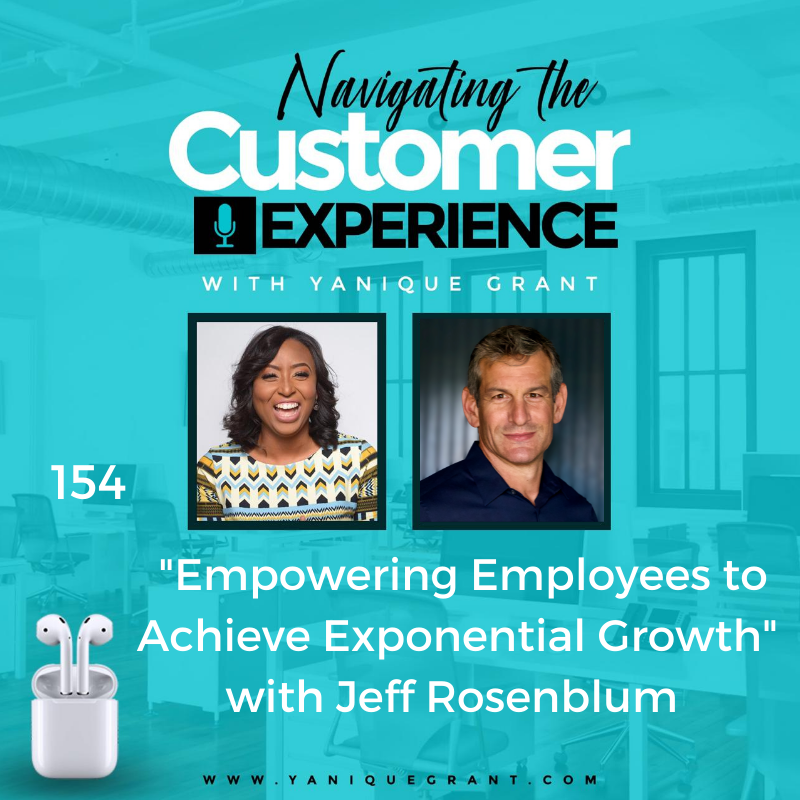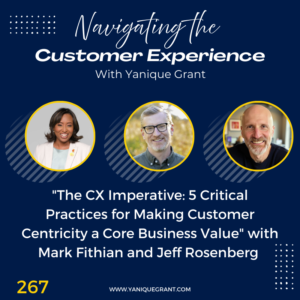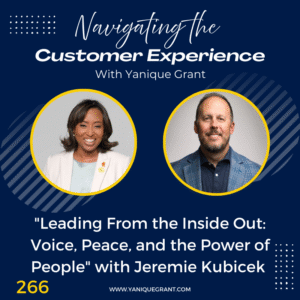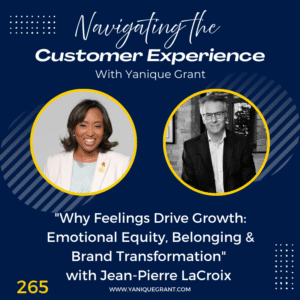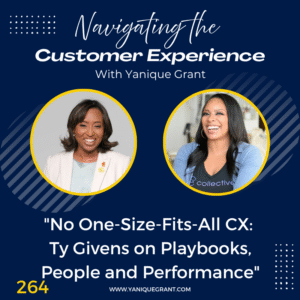Jeff Rosenblum is a co founder of Questus, a digital advertising agency that has worked with many of the world’s most influential brands, including American Express, Apple, Capital One, Disney, The NFL, Samsung, Starbucks, Universal, Wyndham and Verizon. Jeff created a groundbreaking documentary about the advertising revolution called The Naked Brand and the book Friction which explained how passion brands are built.
Jeff has lectured at some of the top universities in the world, including Yale, Cornell, Columbia, and the London Business School. He has won some of advertising’s most prestigious awards, and presented at many of the industry’s largest conferences.
Questions
- Could you share with us a little bit about your journey?
- Your Book Exponential, could you tell us a little bit about what the book is about? Who is the book geared towards helping and what do you mean by empowering? And what do you mean by interrupting?
- What does empowerment really mean in practical steps or practical implementation? When you say you employ your team members, what does that look like? Could you give us maybe one or two examples?
- How do factors like culture and transparency help companies to build exponential growth?
- You mentioned that there are multiple channels that exist nowadays. Let’s say a brand is looking to be present on all channels, but they just don’t have the resources to be active on all channels. What would your recommendation be to them?
- Could you share with our listeners what is the one online resource, tool, website or app that you absolutely cannot live without in your business?
- Could you also share with our listeners maybe one or two books that have had the biggest impact on you? It could be a book that you read a very long time ago, or even one that you read recently. But it definitely has left an impressionable mark on you.
- What’s one thing that’s going on in your life right now that you’re really excited about? Either something you’re working on to develop yourself or your people.
- Where can listeners find you online if they wanted to follow your journey or even to get in contact with you?
- Do you have a quote or saying that during times of adversity or challenge, you’ll tend to revert to this quote; it kind of helps to get you refocused or get you back on track if for any reason you get derailed.
Highlights
Jeff’s Journey
Jeff shared that he took a pretty unique path to where he’s at, he didn’t necessarily go to some of the finest educational institutions in the world, he was a pretty crappy college student, to be honest with you. And when he graduated school, he had to beg his way into an internship at a research company and they gave him a three month shot and he applied a philosophy that he continued to apply every single day now three decades later, which is “First one in, last one out, every day.” First one in, last one out.
So eventually, that internship turned into a full time job and this was around the birth of the internet. And as a researcher, his job was to collect data and they had very traditional ways of collecting that data, it was through the mail and through the mall surveys and phone surveys, in focus groups. And his job was to figure out how he can collect the highest quality data possible at the lowest price. And then when the internet came along, he had this crazy idea, which was why can’t we start collecting all of that data through the internet, which seems grossly obvious now. But really, nobody was doing it at that time, or very few people were doing it at that time.
So, he was lucky enough to be one of the few people pioneering the field of internet research. So, he’s still like a 25 year old zit faced kid, and next thing you know, he’s got Microsoft, Netscape, Sun Microsystems, Walt Disney, Levi Strauss, all as his clients, because he was one of the very few people who knew how to collect data via the internet. But what was interesting is they didn’t just want data, what they wanted was to understand the implications of the internet for their business. And what he quickly realized is that everything about business strategy was about to be revolutionized. And perhaps even more importantly, from his point of view, everything about advertising was about was about to go through a complete and total revolution.
So at that point, he realized he no longer wanted to simply collect the data and tell brands what to do with the Internet, what he wanted to do is actually do something about it, he wanted to blend the world of data and creativity under one roof and create the next generation of advertising agency. So, his college roommate was a world class artist, he had art gallery openings, celebrities, like Johnny Depp were buying his paintings and he had shifted a lot of his focus into the world of digital design. So the whole idea was to take a team of outsiders, him (Jeff) from the data and analytics background, ‘he’ from the creative background, and start an agency that’s focused less on interrupting people through traditional media and more about empowering people through digital media.
Jeff’s Book Exponential: Transform Your Brand by Empowering Instead of Interrupting – What the Book is About – Who is the Book Geared Towards Helping
Me: Amazing. So, you really got into it. And you’ve been in it even before a lot of the organizations that are currently trying to tap into that feature, have been into it. Now you have a new book, Jeff. That’s the things that really, really sparked my interest, your book and it is entitled, Exponential. I love the name. So, could you tell us a little bit about that book? I know subtitle for the book is Transform Your Brand by Empowering Instead of Interrupting. Could you tell us a little bit about what the book is about? Who is the book geared towards helping and what do you mean by empowering? And what do you mean by interrupting?
Jeff shared that he’s always been fascinated by brands that absolutely dominate the competition, brands that grow exponentially in size, in influence, in financial performance. Brands like Warby Parker and Sweetgreen, and Apple, and Google, and Amazon. So, really what he’s done is focused in on how advertising has gone through a revolution and we can no longer rely upon interruptions, meaning buying 30 seconds spots on TV ads, buying full page print ads in magazines, buying pop up ads, and banner ads, in pre rolls.
All of those tools are fine, there’s nothing wrong with them, the data and the mathematic show that they work. And as an agency, they leverage the hell out of those techniques, those are very powerful techniques.
But what they drive are good results, they don’t drive exponential results and what they realized is brands that move beyond just interrupting and expand into empowering people, improving their lives one small step at a time, giving them the content and the tools to move their lives forward, those are the brands that drive the exponential results. So, that’s what the book is about is how data and creativity, how content and technology can be used to empower an audience and dominate the competition.
What Does Empowerment Mean in Practical Steps or Practical Implementation?
Me: Now, you also have in the book that empowerment drives exponential bottom line results. For a business, empowerment, it embodies a lot of different things and I would just like for you to break down to our listeners, what does empowerment really mean in practical steps or practical implementation? When you say you empower your team members, what does that look like? Could you give us maybe one or two examples?
Jeff stated that that’s a great question. Because empowerment really comes in two sides of the equation, how do you empower your customers in your target audience? How do you give them the content and the tools to make sure that they’re getting more out of the products and the services that you create?
But also to the question, empowerment comes in the form of culture, how do we help people on our teams do the best work possible? And he thinks a lot of people have confused culture to mean fun. In Silicon Valley, where their headquarters are out in San Francisco, there was the trend of foosball tables and ping pong tables and bars and right in the office and there’s nothing wrong with those ideas. Having music and some beers and some games is certainly fun. But that’s not culture. And that’s not empowerment.
And what they’ve realized is great culture is really just about putting people in position to do their best work, that’s what people want. If you hire the right people on your team, what they really care about is how can they advance their career as effectively as possible? How can they advance their entire team as effectively as possible? So, great culture is really about giving people those tools, giving people the tools to do their best work.
Me: Amazing. So, we’re giving our employees the tools to ensure that they’re doing their best to work.
How Factors Like Culture and Transparency Help Companies Build Exponential Growth
Me: Now, you spoke a little bit about culture, and you made reference to the fact that a lot of organizations mistake the whole process of culture as being fun and as you said, pool tables and lots of other things that they may attach to the whole vibe of culture. How do factors like culture and transparency help companies to build exponential growth?
Jeff shared that the world is just much more complicated than it’s ever been before, at one point you could get by by having some really good TV ads to drive awareness and interest and then you can have a good retail store with some good retail staff members to turn those people who are interested into customers. But the world just really exploded. Now, you don’t have just those two critical channels and maybe a couple other channels, the world has literally dozens and dozens of channels where you need to not only communicate with your audience, but actually transact with your audience.
So think about Facebook, Instagram, Twitter, LinkedIn, TikTok, your desktop website, your mobile website, your mobile apps, your retail stores, which should be connected to all those digital touch points, as well as all those traditional tools like TV, radio and print, and that’s just a few. By the time we’re done with this podcast, there’s going to be three or four emerging new, great tools and channels.
So, for brands to really succeed, they need to be able to break down the silos that exist internally. You can’t just have great creativity sitting in one silo to create a great 30 second spot. And then great salespeople in another silo who are converting folks.
You need technology and creativity and data and analytics, and project management and finance, all to work together seamlessly. And the only way to do that is build great culture, which is based upon safety of communication, which is built upon process with communication, which is built upon tools for communication, ultimately, breaking down those silos that exist, recognizing that the world is just so much more complex than it’s ever been before.
And the target audience is more demanding than it’s ever been before because although things get really complex in the way that we want to tell our brand story, in the ways that we can tell our brand story, the target audience ultimately, really wants simplicity, they will not stand for any friction in that purchase journey.
Recommendations for a Brand to be Active on Multiple Channels
Me: Now, you mentioned that there are multiple channels that exist nowadays. Let’s say a brand is looking to be present on all channels, but they just don’t have the resources to be active on all channels. What would your recommendation be to them? Because I find that a lot of brands are everywhere, but they’re not responsive everywhere and of course, that will impact the whole journey if it is I’m trying to get in touch with you and it’s just a dead end.
Jeff shared that that is a really great question. And that is the question that all marketers are going to be faced with in perpetuity. And it’s why we also see this addiction to TV in other traditional forms of advertising, because it’s just so much easier to say, “Look, all we need to do is be great at TV, and then maybe great at retail, and we’re done.” But that’s not consistent with the way that people shop nowadays, the way people conduct research, the way they interact with brands and obviously, much more so with a younger audience.
So to answer your question, it really does come back to that culture question, which is, are you breaking down silos so that you can communicate internally, share the data that you have internally, and ultimately, leverage the channels that are most effective for you.
So, the beautiful part of everything that we’re doing right now is we’ve got more data than ever before, unprecedented and unparalleled levels of data.
The problem with data is you can really have information overload, you can really have paralysis by analysis.
So the key is to really streamline your data down to the key performance indicators, there’s probably only one, two or three really critical KPIs that you need to track and through that have honest conversations about where you want to be and what’s most important for your brand and your target audience.
There’s really no reason to be mediocre at Facebook, mediocre at Instagram, mediocre at Twitter, mediocre at LinkedIn, when you can be really great at one or two of those channels.
So data is going to be the answer and understanding that target audience from not just a data standpoint, but also a qualitative standpoint so you understand what is your target audience really value and then couple that with the data to show what’s driving your business results.
App, Website or Tool that Jeff Absolutely Can’t Live Without in His Business
When asked about an online resource that he cannot live without, Jeff shared that he doesn’t know if he has one. But he’ll tell you he thinks the key to their success is based upon a few things and one of them is education, they really preach collaboration, celebration in education.
So, he thinks the apps that enable them to get educated are probably the most important. And there are just a few content sources that he thinks are really powerful. He’s just a huge believer in reading the Wall Street Journal from cover to cover every single day, particularly in the world of advertising, where it’s too easy for us to get caught up in Ad age, in Ad week and other stuff that really just talks about their own industry.
But he thinks as advertisers and marketers for them to be most effective, they need to step back and look at the overall business experience and the overall business strategy because that’s what marketing really is. So, he thinks reading the Wall Street Journal cover to cover is one of the most important things that anybody can do. But there’s also some great newsletters out there, he’s a huge believer in Allen Murray, from Time Inc., from Fortune, he has a world class, daily newsletter. But he thinks for anyone who’s listening, you got to find two or three resources that you can go to, not occasionally, but virtually every single day so you can watch how these stories unfold and how these trends and metrics unfold. But you can never be too educated in a world that’s as dynamic as it is today.
Books that Have Had the Biggest Impact on Jeff
When asked about books that have had an impact, Jeff shared that that’s also a great question. He’s a pretty voracious reader, if he’s honest with business books, he very often will just hammer the first three chapters and find that books often get redundant so he doesn’t make it all the way through. And that’s one of the things they tried to do with Exponential, is treat it like the layers of an onion and make a key point, but have every chapter deal with a new topic as it relates to leveraging the consumer journey or leveraging culture so that the book continues to unfold.
And he thinks a couple of books that have been really influential for him is one of them, which was written by Bill Walsh, posthumously, meaning after he passed away, his family took his notes and the name of the book is, The Score Takes Care of Itself: My Philosophy of Leadership. And he’s one of the greatest football coaches ever; he was the single greatest coach ever until Bill Belichick came along. And his idea was really based upon the concept of putting the ball where the other team isn’t, which really is a great business strategy, meaning don’t follow what everybody else is doing, find that whitespace and let that dictate where your business strategy goes.
But the bigger thing about The Score Takes Care of Itself that you can get from the title is, he really focused in on culture and when he first took over the 40 Niners, before he won a bunch of Super Bowls, he was focused on all these little things like how do secretaries answer the phone? And everyone was like, “What are you doing your football coach? And why are you worried about how people answer the phone, that has nothing to do with what we’re trying to accomplish here.” And he almost didn’t make it, they almost fired him. But his point was like, “We’re going to take care of all the little things, we’re going to take care of the culture. And when we do that, per the title, the score will take care of itself.” And that’s just an absolutely amazing book.
Another great book is a Who: The A Method for Hiring by Geoff Smart, which has been really influential for him. And really what he gets down to is this point about culture. But culture really starts with one thing, which is hiring the absolute best human beings possible.
You can’t really build culture, unless you first build a team of A+ players. And the point of the book is, if you want to get A+ players, there’s a process that you can follow, it’s not just a goal, it’s not just a philosophy, there’s a methodical process that can be used to find those A+ players. And to be honest with you, they don’t always nail the process and you can never be too process oriented for things like that. But it was a real game changer for them in regard to how they approach recruiting and bringing on world class talent.
What Jeff is Really Excited About Now!
When asked what is one thing that he’s really excited about, Jeff stated that that’s a great question. There’s probably two things, the obvious and maybe the less obvious, but much more important, which is, from a business standpoint, this idea of marrying together data and creativity, this idea of building brands through empowerment, instead of interruptions, they started their agency 23 years ago based upon this principle, and now the whole world, the whole business world is really waking up to this is it, this is the model, this is how great brands are going to be built now and in perpetuity. In a lot of ways COVID didn’t change business, he thinks in a lot of ways COVID expedited business and advanced it about seven years forward.
So one of the really exciting things for them is that tons of amazing brands are reaching out to them and they’re in conversations with some of the biggest and the best brands in the world who are really excited about this concept of looking at the entire consumer journey, creating content and tools and empower people rather than just building brands through interruptions. But really, the less obvious, and perhaps even more exciting thing is, as their business grows and they take advantage of these opportunities, the exposure on getting to world class team members and the opportunities they’re creating for their team members is probably the most rewarding and exciting experience he’s ever had in business, just watching young folks on their team take on bigger challenges, get promotions, do some of the best work he’s ever seen in his career, fundamentally and completely outperform him in every way, shape, or form, and then recruiting in new incredible team members who are starting that journey also, that to him is so incredibly rewarding, fulfilling and exciting.
Where Can We Find Jeff Online
Website – https://www.questus.com
Instagram – @thejeffrosenblum
Twitter – @JRQuestus
Quote or Saying that During Times of Adversity Jeff Uses
When asked about a quote or saying that he tends to revert to, Jeff shared that that’s a great question. But no, not really, he doesn’t think there’s any quote that he rely upon that becomes a mantra for life in general. It’s, “If it’s worth doing, it’s worth overdoing.”
Please connect with us on Twitter @navigatingcx and also join our Private Facebook Community – Navigating the Customer Experience and listen to our FB Lives weekly with a new guest
Grab the Freebie on Our Website – TOP 10 Online Business Resources for Small Business Owners
Links
- Exponential: Transform Your Brand by Empowering Instead of Interrupting by Jeff Rosenblum
- The Score Takes Care of Itself: My Philosophy of Leadership by Bill Walsh
- Who: The A Method for Hiring by Geoff Smart
The ABC’s of a Fantastic Customer Experience
Do you want to pivot your online customer experience and build loyalty – get a copy of “The ABC’s of a Fantastic Customer Experience.”
The ABC’s of a Fantastic Customer Experience provides 26 easy to follow steps and techniques that helps your business to achieve success and build brand loyalty.
This Guide to Limitless, Happy and Loyal Customers will help you to strengthen your service delivery, enhance your knowledge and appreciation of the customer experience and provide tips and practical strategies that you can start implementing immediately!
This book will develop your customer service skills and sharpen your attention to detail when serving others.
Master your customer experience and develop those knock your socks off techniques that will lead to lifetime customers. Your customers will only want to work with your business and it will be your brand differentiator. It will lead to recruiters to seek you out by providing practical examples on how to deliver a winning customer service experience!

